Best movies & TV Shows like Papá soltero
A unique, carefully handpicked, selection of the best movies like Papá soltero Starring César Costa, Edith Márquez, Luis Mario Quiroz, Gerardo Quiroz, and more. If you liked Papá soltero then you may also like: El Rey, Confidencias de un ruletero, Cuatro contra el mundo, Se la llevó el Remington, Champion Without Crown and many more popular movies featured on this list. You can further filter the list even more or get a random selection from the list of similar movies, to make your selection even easier.
Papá soltero was a series on the Televisa network that began on February 11, 1987 and ended on July 6, 1994. It was produced by Luis de Llano Macedo and broadcast on Canal de las Estrellas It was starred by César Costa, along with Luis Mario Quiroz, Edith Márquez, Gerardo Quiroz, with stellar performances by José Luis Cordero, Aurora Alonso and Octavio Galindo.
You may filter the list of movies on this page for a more refined, personalized selection of movies.
Still not sure what to watch click the recommend buttun below to get a movie recommendation selected from all the movies on this list
Confidencias de un ruletero
Taxi driver takes the wrong passenger at the wrong time and gets caught up in a murder investigation.
Cuatro contra el mundo
This dazed Mexican-melodrama-cum-boozer-heist-noir cuts a dark swath over a border nominally dominated by the hardboiled likes of Chandler and Hammett. Employing many of the classic tropes of Mexican noir (blood-tainted money, hothouse betrayals, the entrapped yearnings of dark hearts), we follow the slow demise of a gang who hole up in an attic in the wake of a fatal robbery. Galindo liberally dashes in lashes of the smokiest amour mort, gradually whittling it down to an ill-fated if rapturous coupling of gangster’s moll and underling. Starring Leticia Palma and Víctor Parra.
Se la llevó el Remington
While tracking down the three men that killed his father, a notorious bad-ass commits other misdeeds, seemingly based on his desire to wreck as many lives as possible. Doesn't really have anything to do with the historical figure known as Remington, though they used his name for the character here.
Champion Without Crown
A young ice cream vendor, Roberto Terranova, witnesses a child being beaten and comes to his aid by physically overpowering the aggressor. His strength and natural ability catches the eye of a well-known boxing trainer. Considering him a diamond in the rough, he aims to put Roberto in the professional ring. But Roberto finds that his personal challenges must be overcome before he can achieve professional greatness.
El último cartucho
Two gunslinger brothers are reunited once again to save a Native American tribe.
Mariana Mariana
The story runs in the 1940s Mexico City. A schoolboy (Carlos) falls in love with his best friend's mother (Mariana). Carlos is impressed because this family is not like the ordinary mexican families of the time, because they have many expensive American things, although they are not rich. The drama begins when Carlos gets out of school to go to declare his love to Mariana, and is discovered by his teachers.
Pepe El Toro
The simple life and the values of loyalty and solidarity of the poor people in the environment of professional boxing, is the plot of this film, where Pepe el Toro shows the effort and tragedies that are experienced in this profession.
The Humiliated
Four nuns are raped by a group of lepers. Although they all turn out to be pregnant, their status is hidden from them in the convent.
Italian Bride
Muchacha italiana viene a casarse is a 1971 Mexican telenovela by Televisa produced by Ernesto Alonso and directed by Alfredo Saldaña, starring Angélica María and Ricardo Blume. Writing credits belong to Delia González Marquez, Fernanda Villeli, Marissa Garrido, Miguel Sabido and Carlos Lozano Dana The series featured two theme songs: "A dónde va nuestro amor" and "Lo que sabemos del amor". Both songs were written by Eduardo Magallanes and performed by Angélica María.
La Madrastra
La Madrastra is a Mexican telenovela. It was produced by Televisa and broadcast on Canal de las Estrellas in Mexico from 7 February 2005 through 29 July 2005. The program became an unexpected success, garnering ratings in excess of 30 points. Starring Victoria Ruffo and César Évora, who last appeared together in 2000's Abrázame muy fuerte, La madrastra tells the story of María, a woman who lost twenty years of her life after being falsely accused of murder and who returns to Mexico to exact revenge on her husband and friends who abandoned her and to see her beloved children once more. La Madrastra is fourth in a series of remakes of the 1981 Chilean production of the same name. The program aired five nights a week, Monday through Friday, at 9 pm for 25 weeks. A follow-up special, La madrastra: años después, aired shortly after the finale on 30 July 2005.
Piel de otoño
Piel de otoño is a Mexican telenovela that was produced by Televisa and broadcast on El Canal de las Estrellas in Mexico from 9 May 2005 through 23 September 2005 in Mexico, and from October 10, 2005, through February 17, 2005, in the United States. Starring Laura Flores and René Strickler as the series' protagonists, the show tells the story of Lucía Villarreal de Mendoza, a woman who seeks refuge from her husband and children's abuses in the friendship of a stranger on the Internet, who signs his messages only as "wind". Piel de otoño is a remake of the 1986 Televisa telenovela Cicatrices del alma. The program aired weekdays at 5 pm for twenty weeks.
La Verdad Oculta
La Verdad Oculta is a Mexican telenovela, fusion and remake of two telenovelas, one of which is El Camino Secreto; the other is Al Final del Arco Iris, a novela produced by Ernesto Alonso in 1982, written by María Zarattini and José Rendón. Probably because the telenovela is a fusion, there are two sets of protagonists: The actors playing the protagonists of La Verdad Oculta are Galilea Montijo, Gabriel Soto, Alejandra Barros and Eduardo Yáñez, and one of the antagonists is played by Julio Alemán. The telenovela was under the production of Emilio Larrosa. Mexico's Canal de las Estrellas aired the telenovela from February 27, 2006 to August 11, 2006. Univision aired it from August 31, 2010 to March 7, 2011 at 12am central. The story is distinctive in that three artifacts are practically characters in their own right and have their own stories: 1 a piece of paper with writing on it, 2 diamonds, and 3 a pair of cuff links. The story of these artifacts gets quite complicated.
Libre para amarte
Libre para amarte is a Mexican telenovela produced by Emilio Larrosa for Televisa. It is based on Colombian telenovela Los canarios. Gabriel Soto, Eduardo Santamarina star as the protagonists, with the stellar performance of the singer and actress Gloria Trevi for first occasion in a soup opera as Aurora Valencia, while Harry Geithner, Jacqueline Andere and Luz Elena González star as the antagonists.
Amar sin límites
Amar sin límites is a Mexican telenovela that was produced by Televisa and broadcast on that company's El Canal de las Estrellas. The program debuted on 16 October 2006 at 7:30 pm; the first ten episodes were only thirty minutes long, with the program expanding to an hour long on 30 October and taking over the 7:00 time slot previously occupied by Duelo de Pasiones. After 135 episodes, the telenovela completed its run on 20 April 2007, and was subsequently replaced with Muchachitas como tú. In the United States, Amar sin límites aired on Univisión from 17 July 2007 through 18 January 2008 at 8:00 pm. This limited-run serial is a remake of the 2003 Argentine telenovela Resistiré; it is the first such remake, as a second adaptation, Watch Over Me, was created for MyNetworkTV in the United States and debuted in December 2006. Amar sin límites stars as protagonists Karyme Lozano and Valentino Lanús, whose characters, Diego and Azul, endure a tortured romance that becomes entangled in the world of organized crime thanks to Azul's fiancé, Mauricio, portrayed by René Strickler.
El Privilegio de Amar X
El Privilegio de Amar is a Mexican telenovela. It was produced by Televisa and broadcast on El Canal de las Estrellas from 27 July 1998 through 26 February 1999. Starring Adela Noriega, René Strickler, Helena Rojo and Andrés García with the participation of leading actor Enrique Rocha and Cynthia Klitbo as the evil Tamara, who is the main villain. The telenovela tells the story of a fashion designer, Luciana, who begins searching for the daughter she abandoned years earlier, unaware the girl is none other than Cristina, a model in Luciana's fashion house who has fallen in love with Luciana's stepson. El Privilegio de Amar is a remake of the 1985 Venezuelan novela, Cristal. The program aired weeknights at 9pm for 31 weeks, for a total of 155 episodes. El Privilegio de Amar is the highest-rated television program in Mexico to date, it registered an average of 34.8 percent of TV audience. The telenovela received TVyNovelas Award for Best Telenovela, in 1999.
Los Parientes Pobres
Los Parientes Pobres is a telenovela made by Mexican TV network Televisa. It is a telenovela set in Mexico. This telenovela was broadcast in 1993.
Código Postal
Código Postal is a Mexican telenovela produced by Televisa and aired in Mexico on the network canal de las estrellas. It debuted on May 22, 2006 and finished on February 23, 2007 with hopes of duplicating the popularity of Mexican telenovela Rebelde which ended on June 2, 2006. Código Postal was replaced with Lola...Érase una vez. The serial takes place in Acapulco, a popular tourist destination in the state of Guerrero, Mexico. The series is set within an exclusive gated community where the bulk of the cast resides. Like many Mexican telenovelas the cast comprises young, attractive actors, and many of the plotlines revolve around suspense, heavy struggles, love and romance.
Luz Clarita
Luz Clarita is a Mexican telenovela produced by Televisa that aired on Canal de las Estrellas in 1996. The series, a remake of Andrea Celeste and Chispita, stars Verónica Merchant and César Évora, as well as child actors Daniela Luján and Ximena Sariñana. It has a dual storyline intended to attract both children and adults.
Burning for Revenge
Fuego en la sangre is a telenovela that began transmissions on January 21, 2008, through Mexico's Canal de las Estrellas network. Starring Adela Noriega, Eduardo Yáñez, Diana Bracho, and Guillermo García Cantú. It is the Mexican remake of the Colombian soap operas Las Aguas Mansas and Pasion de Gavilanes. The theme song called "Para Siempre" is sung by Vicente Fernández. The telenovela received TVyNovelas Award for Best Telenovela, in 2009.
Locura de Amor
Locura de amor is a 2000 Mexican telenovela produced by Roberto Gómez Fernández for Televisa. It was broadcast by Canal de las Estrellas in 2000. It stars Juan Soler, Adriana Nieto and Irán Castillo.
Street's Virgin
Virgen de la Calle is a 2013 Spanish-language telenovela that was produced by RTI Producciones and Televisa for United States-based television network UniMás and Venezuela-based television network RCTV. It is a remake of Juana la virgen, a Venezuelan telenovela produced for RCTV. María Gabriela de Farías and Juan Pablo Llano will star as the protagonists.
Two Women, One Road
Dos mujeres, un camino is a Mexican telenovela, produced by Televisa, which originally aired from August 2, 1993 to July 1, 1994, on Canal de las Estrellas.
Men Wanted
The main theme of the series tells the story about private lives of a group of women who are frequent clients of “Angelica Style”, a prestigious beauty clinic. This group of women, Angelica, Nora, Mercedes, Samantha, Loreto, Vanesa, Lilí, Gabriela, Fernanda and Cecilia, have one thing in common: they have all failed to find the men of their dreams. As the stories blend, their different personalities are shown and their deepest wishes are revealed. They want to find a man who can understand them with freedom and love.
Mujeres engañadas
Mujeres engañadas is a Mexican telenovela that was produced by Televisa and broadcast on El Canal de las Estrellas from October 25, 1999, to April 7, 2000. Produced by Emilio Larrosa, the novela stars Laura León and Andrés García as well as an ensemble cast and tells the story of four couples who live in the same apartment building.
Rafaela
Rafaela is a Mexican telenovela produced by Nathalie Lartilleux for Televisa. It is based on the Venezuelan telenovela of the same name produced in 1977. Scarlet Ortiz and Jorge Poza star as the main protagonists, while Chantal Andere, Diana Bracho and Arturo Carmona star as the main antagonists. Though Rafaela was nominated for best female antagonist, best first actor, and best first actress, it did not win any awards. Canal de las Estrellas originally broadcast Rafaela at 5pm MDT from January 31 to March 11, 2011. From March 14 to July 15, 2011, it was moved to 4PM MDT. From June 20 to August 5, 2011, Univision transmitted Rafaela weekdays at 1pm central for 2 hours, replacing Niña de mi Corazón. From August 8, 2011 to October 14, 2011, one episode was shown weekdays at 1pm central.
Amorcito Corazón
Amorcito Corazón is a Mexican telenovela produced by Televisa by Lucero Suarez. Rehabilitation of the Venezuelan RCTV telenovela Trapos Intimos. It stars Elizabeth Álvarez, Diego Olivera, Africa Zavala and Daniel Arenas, involving Fabiola Campomanes, Gerardo Murguia and Macaria as the main villains and stellar performances by the leading lady Mariana Karr, and Grettell Valdez. Canal de las Estrellas broadcast Amorcito Corazón from August 29, 2011, to June 10, 2012, with Cachito de Cielo replacing it. Univision confirmed an afternoon airing of Amorcito Corazón, and is currently seen weekday afternoons at 2pm central. Previously, Univision broadcast it at 3pm, replacing Dos Hogares from May 30 to June 15, 2012.
Alcanzar una estrella
Alcanzar una estrella is a Mexican telenovela first broadcast on Canal de las Estrellas in 1990. The telenovela, which was also broadcast in Latin America and on Univision in the United States, tells the story of an introverted girl's infatuation with her teen idol. The leading roles were played by singers Mariana Garza and Eduardo Capetillo, ex-members of the Mexican pop band Timbiriche. The two also sang the theme songs for the telenovela, which were written by Ricardo Arjona. Arjona and other singers such as Patricia Manterola also made acting cameos. The telenovela was remade into an American show on Nickelodeon called Hollywood Heights. The show premiered June 2012. The success of the telenovela was such that it was made into a film Más que alcanzar una estrella and a sequel telenovela Alcanzar una estrella II, starring Sasha Sokol and Ricky Martin. The story was produced by Luis de Llano, producer and manager of Timbiriche and Garibaldi, and written by actress Rita Macedo, de Llano's mother. Alcanzar una estrella turned out to be Macedo's last credit as an actress before she committed suicide in the mid-1990s.
Ángela
Angela is a Mexican telenovela, which was produced by Televisa and broadcast on Canal de las Estrellas in 1998. The series was first debuted on May 17, 1999 on Univision in the United States, replacing that year's hit La Mentira, and ended on September 9, 1999, being replaced by Tres Mujeres. It aired a second and a third time on Galavisión on March 15, 2000 and May 8, 2001, and ended a second and a third time on July 1, 2000 and August 24, 2001. It aired a fourth time back to Univision's late night "Grandes Historias" lineup, aired on October 28, 2003, and ended on February 27, 2004. It aired a fifth time on TeleFutura on September 18, 2006, and ended on January 8, 2007. This telenovela contained 78 episodes.
Palabra de Mujer
Palabra De Mujer is a telenovela remake of El Amor Tiene Cara De Mujer was made by Televisa, starring Edith González, Yadhira Carrillo, Ludwika Paleta, and Lidia Ávila. The telenovela, a production of José Alberto Castro, premiered October 22, 2007 and ended on May 9, 2008 in El Canal de las Estrellas.
Esperanza del Corazón
Esperanza del Corazón is a Mexican telenovela produced by Luis de Llano Macedo for Televisa. It is a merger of Aguetas de Color de Rosa and Confidente de Secundaria, produced by Luis de Llano Macedo in 1994 and 1996, respectively. Bianca Marroquin and Patricio Borghetti star as the main protagonists, while Lucía Méndez and Lisardo Guarinos star as the main antagonists. Esperanza del Corazón won 1 award in Premios TVyNovelas: Best co-star actress. Canal de las Estrellas aired Esperanza del Corazón from July 18, 2011 to February 3, 2012, with Un Refugio para el Amor replacing it. Univision aired Esperanza del Corazón at 2pm central from September 6 to October 14, 2011, replacing one hour of Zacatillo, un lugar en tu corazón. It was later seen at 1pm central from October 17, 2011 to March 9, 2012, replacing Rafaela. From March 12 to March 23, 2012, Univision moved "Esperanza del Corazón" to 12pm central, due to El Talismán airing at 1pm central.
El Privilegio de Mandar
El Privilegio de Mandar was a successful Mexican political parody broadcast by Televisa on Canal de las Estrellas. It started as a sketch on another Televisa show, called La Parodia, that parodies political, social and cultural events happening in Mexico. High ratings kept the show running. It was first broadcast on October 25, 2004, during La Parodia. Soon, the high success of the program encouraged the producers to separate it from the other show, so on January 3, 2005, it became an independent show. Televisa broadcast what is considered the last episode of the series on July 9, 2006, just after the federal elections in Mexico. However, some of the actors who performed leading roles stated that in a few years, when political events have advanced, they will make a return to see how things are.
La Carabina de Ambrosio
La Carabina de Ambrosio was a variety television program broadcast between 1978 and 1987 presented as a Comic-Magical-Musical Show. It was produced by Humberto Navarro. It was hosted by figures such as Gualberto Castro, César Costa, Fito Girón and Manolo Muñoz. Some of the sketches of the broadcast were Guillo and the altar boy (Chabelo and the host in turn), La escuelita (Gualberto Castro, La pájara Peggy, Guillo, el Vulgarcito), the ventriloquist and Pujitos (César Costa and Chabelo), La Palabra Canta (Alejandro Suárez) and Mercado de Lágrimas (parody of Valle de Lágrimas and soap operas of the time) and parodies of the musical hits of the moment.









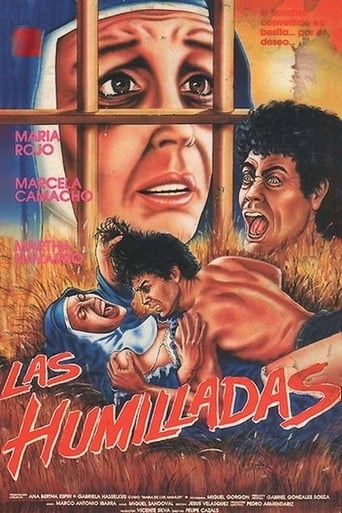
















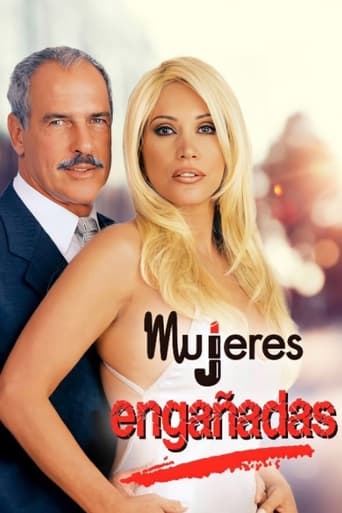









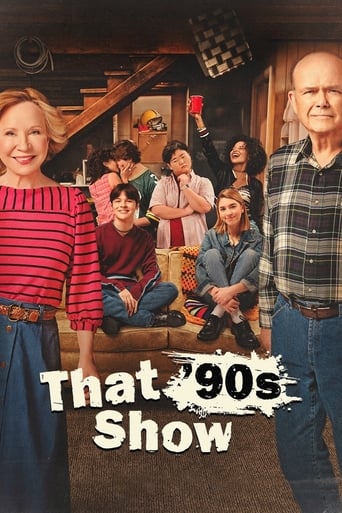





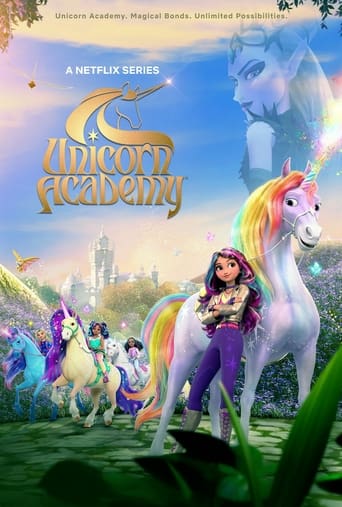
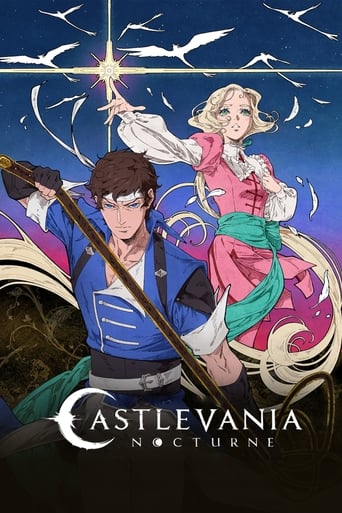



El Rey
Mexican Revolution era: a guerilla faction kidnaps two members of a governing family to negotiate a ransom.